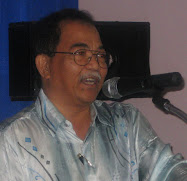Malaysian Prime Minister Najib Razak pledged to fight corruption, bring down living costs and build a pan-Borneo expressway if his coalition retains power in elections due in a matter of weeks.
These were all policies mooted by opposition leader Anwar Ibrahim in his manifesto released six weeks earlier than the one Najib’s governing National Front unveiled at a weekend rally inKuala Lumpur. The Election Commission meets this week to set a date for polls after the prime minister dissolved parliament on April 3. “They had the benefit of time to study our manifesto over the past month and incorporate some elements,” Ong Kian Ming, a political analyst at Kuala Lumpur’s UCSI University and an opposition election strategist, said by phone. “Unlike us, there’s nothing in there about electoral reform. That’s something a lot of people are concerned about.”
In the lead-up to the polls, Najib has boosted government spending, distributed a second round of cash handouts to the poor, and raised salaries of civil servants, police and the military. He also delayed implementing a goods-and-services tax and froze plans to wind back state subsidies on essential items. The manifesto offers increased handouts for the poor, and lowered car costs and broadband fees.
“My sincere apologies to all Malaysians if we have done anything wrong,” the prime minister said in a speech at the rally, broadcast live on national television. “At the end of the day, we are ordinary humans. If we are given a strong mandate, I can assure you that we will do better in the next five years.”
Najib promised more specialist graft courts and greater public disclosure of government contracts if the National Front is allowed to extend its 55 years of unbroken rule. Among the pledges are more affordable housing, and improved health care and transportation, including a high-speed rail link between Kuala Lumpur and Singapore.
“A lot of the ideas have already been mooted by the opposition, like lowering car prices, cheaper Internet and a pan-Borneo highway,” James Chin, professor of political science at the Malaysian campus of Australia’sMonash University, said by phone yesterday. “Najib talked mostly about things that are popular with the people. He didn’t give details on macro- economic issues like implementing GST and cutting state subsidies.”
To stay in power, Najib, 59, must see off a resurgent opposition led by Anwar, a former deputy prime minister. Brokerages including Bank of America Merrill Lynch and Citigroup Inc. expect an even closer election result than in 2008, when the National Front retained power by its narrowest margin since Malaysia’s independence from Britain in 1957.
The risk of the ruling coalition losing seats in the election has helped make the FTSE Bursa Malaysia KLCI Index Southeast Asia’s worst-performing benchmark in 2013. The stock gauge is down 0.3 percent this year, compared with a 14 percent gain in the leading index in Indonesia and a 7 percent increase in Thailand’s benchmark gauge.
The KLCI was trading 0.2 percent lower as of 9:58 a.m. in Kuala Lumpur today, while the ringgit was little changed to the dollar at 3.0564.
Najib, who inherited a country in recession when he replaced Abdullah Ahmad Badawi as leader mid-term in 2009, wants a mandate to complete his economic and government reforms started less than three years ago. He’s focusing on his track record in boosting investment and improving incomes as he seeks a popular mandate for the first time.
Malaysia’s economy has shown resilience in the face of the global slowdown, expanding by more than 4 percent for each of the 13 quarters to the end of 2012, according to data compiled by Bloomberg. Private investment has tripled since Najib began his economic-transformation program in September 2010, rising 25 percent last year to 139.5 billion ringgit ($46 billion), according to government data.
Almost half of the voters surveyed in a poll by the Merdeka Center for Opinion Research said fighting graft is a more pressing issue for the next government than taming inflation or boosting foreign investment. The survey of 1,021 voters was conducted from Jan. 23 to Feb. 6 on the country’s peninsula and had a margin of error of 3.07 percent.
While Malaysia moved to 54th from 60th place among 176 countries in Transparency International’s Corruption Perceptions Index last year, it was ranked last for bribery among 30 nations surveyed. About 3,000 executives from 30 countries were asked whether they’d lost a contract in the past year because competitors had paid a bribe. In Malaysia, 50 percent said yes, the Berlin-based advocacy group said.
The National Front is “committed to doing much more to combat the scourge” of corruption, according to its manifesto, which emphasized its experience in government and urged voters not to “gamble away” the future.
Anwar’s three-party People’s Alliance opposition coalition comprises his own multiethnic People’s Justice Party, the Chinese-majority Democratic Action Party, and the Pan-Malaysian Islamic Party, which wants to expand Shariah law.
The People’s Alliance won control of five of Malaysia’s 13 states in the 2008 election. The National front later won back Perak state when several lawmakers defected.
The opposition currently holds 75 of 222 parliamentary seats, while Najib’s alliance has 137, according to the Malaysian parliament website. Anwar predicted a minimum 10-seat majority for his alliance in a March 8 interview.
Najib’s manifesto said Malaysia would seek a non-permanent seat on the United Nations Security Council to play a greater role in regional peace, promoting moderate Islam and inter-faith harmony. A National Front government would support the establishment of a Palestinian state, and humanitarian efforts in Gaza, theWest Bank, southern Thailand and Mindanao in the Philippines, it said.
To contact the reporter on this story: Manirajan Ramasamy in Kuala Lumpur at rmanirajan@bloomberg.net
To contact the editors responsible for this story: Stan James in Hong Kong at sjames8@bloomberg.net; Rosalind Mathieson in Singapore at rmathieson3@bloomberg.net








No comments:
Post a Comment